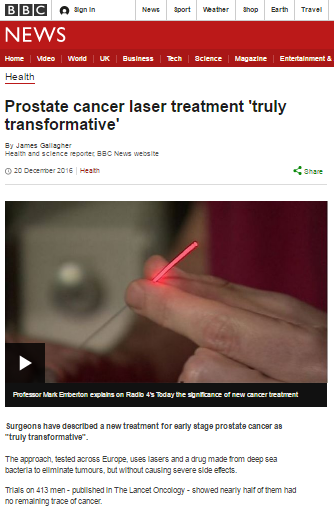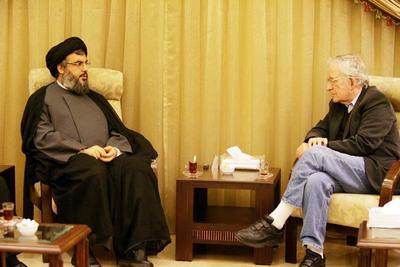This is a guest post by Aron White.
A few weeks ago Jewish Chronicle editor Stephen Pollard drew attention to the BBC’s “soft boycott” of Israel. The term, coined by Mr Pollard, describes the BBC’s tendency to report on Israeli innovations and technological breakthroughs without mentioning that they took place at Israeli institutions and companies. Most recently, the BBC recently reported on a breakthrough in cancer treatment by the Weizmann Institute, but the Israeli origins of the research were significantly downplayed.
I wish to further analyse this “soft boycott” and argue that it is actually multifaceted. There are times when the BBC completely ignores Israel’s connection to a newsworthy company, times when Israel’s connection is significantly downplayed and times when Israel’s connection is specifically focused on, in cases which fit a particular agenda and narrative of Israel as a militaristic and pariah state.
In some cases brilliant Israeli inventions are reported by the BBC but their Israeli origins are completely ignored. ReWalk is a revolutionary technology designed by Dr Amit Goffer from Haifa’s Technion University, allowing people with spinal cord injuries to stand upright and walk again, using a sophisticated exo-skeleton. Claire Lomas, a paralysed woman from Leicester, made UK national headlines in 2012, when she used a ReWalk suit to walk the entire London Marathon, battling to complete the course in 16 days.
In the BBC coverage both before and after her success, much focus was given to how the ReWalk system works, but no mention of ReWalk’s Israeli origins was made. In 2015, BBC reported on a British military veteran who is using the ReWalk system as part of a “Salford University pilot scheme” – again without mentioning ReWalk’s Israeli origins – and an article last September about Mrs. Lomas completing the Great North Run once again does not mention Israel.
The BBC is capable though of reporting the origins of products – a different but highly comparable BBC story opens with the line “A cutting edge exo-skeleton designed by a Brazilian neuroscientist…..”. In the case of ReWalk, the Israeli origins of the company are completely ignored.
There are also times when the BBC mentions the Israeli connection to a company but downplays that connection, often in a contrived way. Over the past few years, the BBC has reported on the acquisition by Google of DeepMind, a “UK start up” , Rangespan – another “UK start up” – and it published a follow-up article about DeepMind the “UK firm”.
Yet such simple language is not sufficient when talking about Israeli companies. When Google bought Waze – an Israeli start-up – in 2013 the BBC reported that they had bought “the Israel – based start-up”. In a more recent story about Waze, the BBC described the origins of the company with the following contrived sentence “Waze began in Israel 10 years ago before launching in the UK in 2011.”
It is well-known that start-ups “begin” the whole time – Apple “began” in America, Alibaba “began” in China and on Dragon’s Den, investors consider whether to invest in companies that also spontaneously “began”. In the case of Waze, Israel is mentioned – but in a way that falls short of saying the phrase “Israeli company”. Mention Israel – but not too much.
Unless, that is, the story fits a particular narrative of Israel; then the BBC places Israel’s role front and centre. “Meeting Cellebrite – Israel’s master phone crackers” announced a BBC headline last September. The article begins with the following line – “It’s an Israeli company that helps police forces gain access to data on the mobile phones of suspected criminals.” Suddenly the BBC is keen for people to know that the company is Israeli because here the story features a company that does something sinister and ‘Mossad – like’.
The military theme is also front and center of the BBC’s recent article from October entitled “How Israel builds its hi-tech start-ups.” The article focuses almost exclusively on the role of the military in driving Israeli start-ups and the theme is so central that there are no photos actually featuring Israeli start-ups but one that shows former Iranian President Mahmoud Ahmadinejad and the claim that Israeli cyber-ops were involved in attacking Iran’s nuclear program. For the BBC, Israel is sometimes a start-up nation – as long as the story can mention the military in the same sentence.
In the end, the BBC’s coverage of Israeli start-ups is merely a reflection of how the BBC views Israel in general – as a nation defined exclusively by its conflict with the Palestinians and the Arab world, suffused with a militaristic culture, that flits on the edge of being a pariah state. Nowhere is this one-dimensional view of the country clearer than in the BBC’s own country profile of Israel; that article features the word “Gaza” eight times, “Arab” ten times, and “Palestine” or “Palestinian” fourteen times. It does not mention the name of a single Israeli Prime Minister, Nobel Prize winner or cultural figure, past or present, and includes barely anything except a (one-sided) history of the Israeli-Arab conflict. This is the essential, simplistic view of Israel that the BBC propagates and so stories about Israeli innovations – which imply that Israel is a normal country, with a national life, society, culture and economy unrelated to the conflict – are ‘de-Israelised’ to stick to the narrative.
Israel is a multi-faceted country that, amongst other aspects, has a thriving scientific and technological community creating solutions to some of the worlds greatest challenges and bettering the lives of millions of the people around the world. The BBC must stop its soft boycott of Israel and allow readers to see the multiple sides of Israel rather than hide away any “redeeming features” of the country. In the name of journalistic standards, the BBC should allow the facts about Israel to create the narrative, rather than the reverse.




